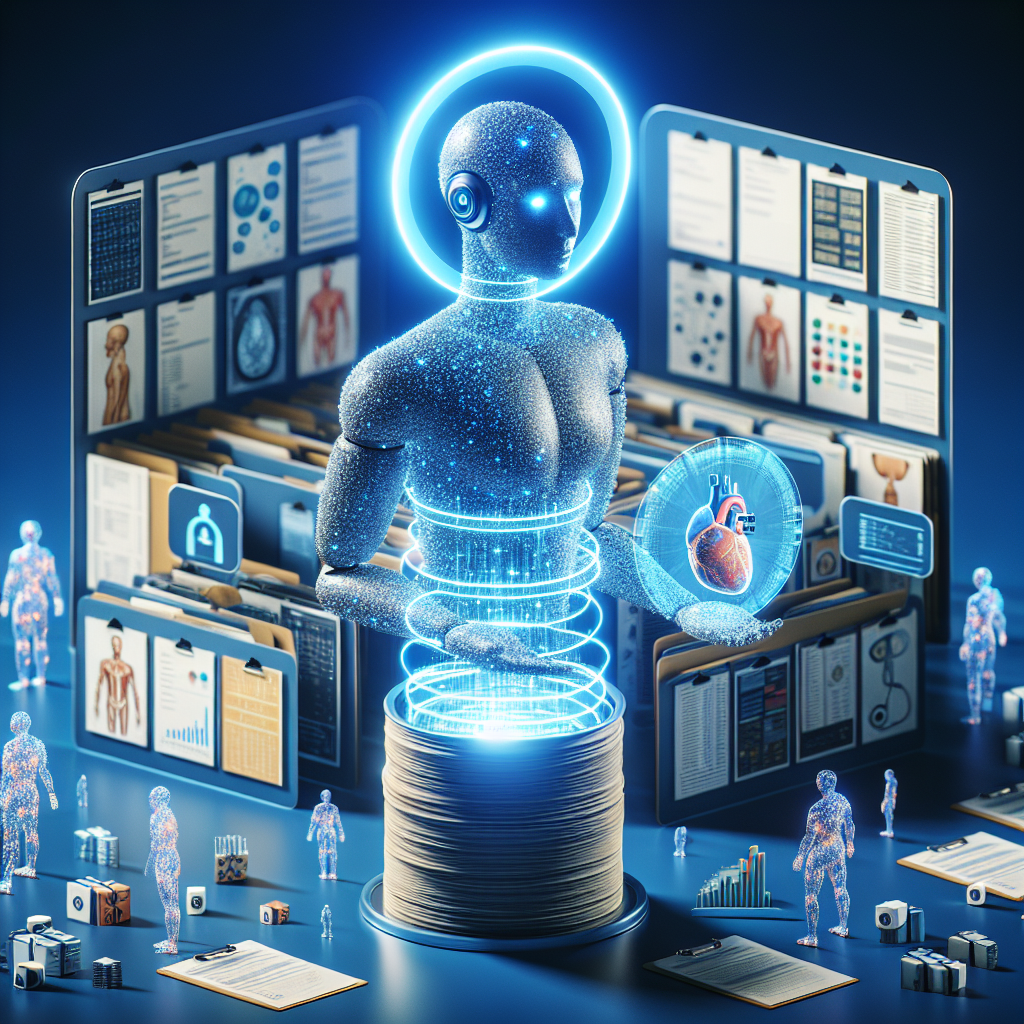The Impact of AI Integration on Healthcare Data Analytics
In recent years, the healthcare industry has seen significant advancements in technology, particularly in the field of data analytics. With the increasing amount of data being generated in healthcare settings, there is a growing need for innovative solutions to analyze and make sense of this information. One such solution is the integration of artificial intelligence (AI) into healthcare data analytics.
AI refers to the simulation of human intelligence processes by machines, particularly computer systems. In the context of healthcare data analytics, AI can be used to analyze large amounts of data quickly and accurately, identify patterns and trends, and make predictions about patient outcomes. This has the potential to revolutionize the way healthcare data is used and interpreted, leading to improved patient care, better outcomes, and more efficient healthcare delivery.
One of the key benefits of AI integration in healthcare data analytics is its ability to process and analyze vast amounts of data in real-time. This enables healthcare providers to make more informed decisions about patient care, treatment plans, and resource allocation. AI can also be used to identify patterns and trends in data that may not be immediately apparent to human analysts, leading to more accurate diagnoses and treatment recommendations.
Another benefit of AI integration in healthcare data analytics is its ability to personalize patient care. By analyzing individual patient data, AI can help healthcare providers tailor treatment plans to the specific needs and preferences of each patient. This can lead to better outcomes, increased patient satisfaction, and reduced healthcare costs.
AI can also be used to predict patient outcomes and identify patients at risk of developing certain conditions. By analyzing historical data and using predictive analytics, AI can help healthcare providers identify patients who may be at risk of developing complications or requiring additional care. This enables healthcare providers to intervene early and provide proactive care, leading to better outcomes and reduced healthcare costs.
Despite the many benefits of AI integration in healthcare data analytics, there are also challenges and concerns that need to be addressed. One of the main challenges is the need for robust data infrastructure and security measures to ensure the privacy and security of patient data. Healthcare providers must ensure that their systems are secure and compliant with data protection regulations to prevent data breaches and unauthorized access.
Another challenge is the need for adequate training and education for healthcare professionals to effectively use AI in data analytics. Healthcare providers must be trained to understand how AI works, interpret the results of AI algorithms, and integrate AI into their clinical practice. This requires ongoing education and support to ensure that healthcare providers are able to use AI effectively and ethically.
In addition, there are concerns about the potential for bias in AI algorithms. AI algorithms are only as good as the data they are trained on, and if the data used to train the AI is biased or incomplete, the results may be skewed. Healthcare providers must be vigilant in monitoring and validating AI algorithms to ensure that they are accurate and unbiased.
Overall, the integration of AI into healthcare data analytics has the potential to revolutionize the way healthcare is delivered and improve patient outcomes. By leveraging AI to analyze data, identify patterns, and make predictions, healthcare providers can make more informed decisions, personalize patient care, and predict patient outcomes. However, there are challenges and concerns that need to be addressed, including data security, training and education, and bias in AI algorithms.
FAQs:
1. What is AI integration in healthcare data analytics?
AI integration in healthcare data analytics refers to the use of artificial intelligence algorithms and technologies to analyze and interpret large amounts of healthcare data. AI can be used to identify patterns, trends, and correlations in data, make predictions about patient outcomes, and personalize patient care.
2. What are the benefits of AI integration in healthcare data analytics?
Some of the benefits of AI integration in healthcare data analytics include the ability to process and analyze vast amounts of data in real-time, personalize patient care, predict patient outcomes, and identify patients at risk of developing certain conditions. AI can help healthcare providers make more informed decisions, improve patient outcomes, and reduce healthcare costs.
3. What are the challenges of AI integration in healthcare data analytics?
Some of the challenges of AI integration in healthcare data analytics include the need for robust data infrastructure and security measures, adequate training and education for healthcare professionals, and concerns about bias in AI algorithms. Healthcare providers must ensure that their systems are secure and compliant with data protection regulations, train their staff to use AI effectively, and monitor and validate AI algorithms to ensure accuracy and unbiased results.
4. How can healthcare providers address the challenges of AI integration in healthcare data analytics?
Healthcare providers can address the challenges of AI integration in healthcare data analytics by investing in robust data infrastructure and security measures, providing adequate training and education for healthcare professionals, and monitoring and validating AI algorithms for accuracy and bias. By addressing these challenges, healthcare providers can leverage AI to improve patient care, outcomes, and efficiency in healthcare delivery.

